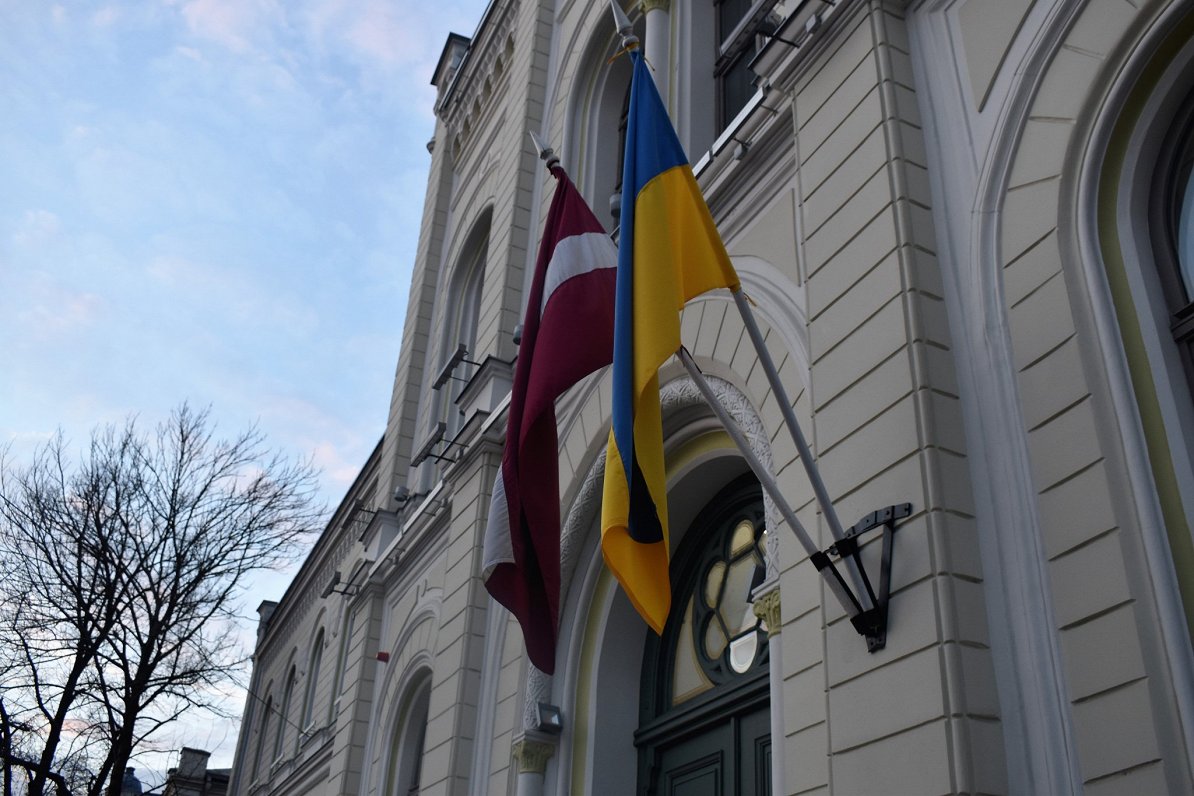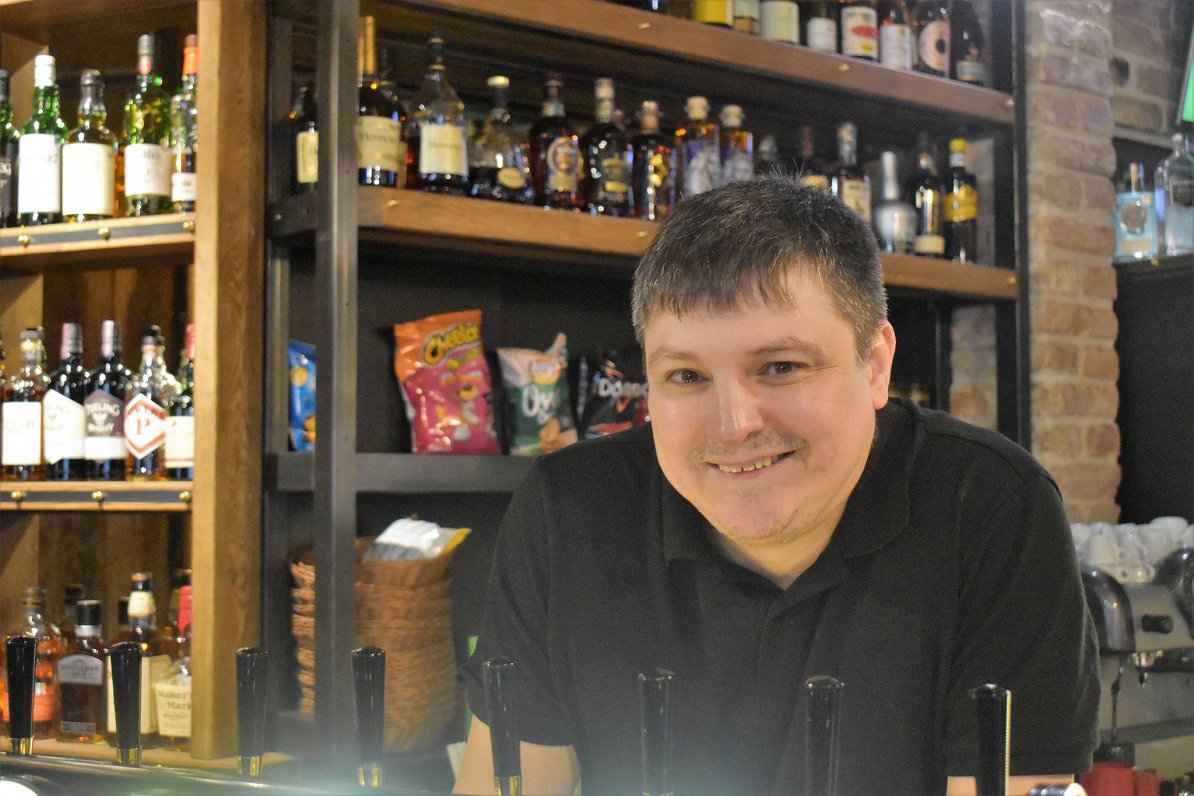When they get thirsty, they should pop into the Thirsty Bulldog or the Armoury Bar, adjacent watering holes in Riga’s Old Town, where Sergei Gudzs will take good care of them. This veteran bartender has been setting them up for locals, tourists and expats alike for over two decades, and his own family history almost involves many points in the map.
Sergei’s father hailed Ternopil Oblast in western Ukraine. As a young man, he and a bunch of mates from his village moved to Latvia and got a construction job in Ādaži, just outside Riga. Sergei describes this as a “typical Soviet story,” since even as part of the USSR living standards were higher in the Baltic States, attracting migrants who wanted to better themselves.
Sergei’s maternal grandfather was a Latvian. During the Second World War, he was sent to labor in Germany, and at the end of the conflict he was so terrified of Soviet repression for allegedly collaborating with the Nazis that he went to Belarus. He got married there, and when the family eventually moved to Latvia, they mainly spoke Russian.
In spite of this, Sergei is fluent in Latvian, and has always had strong feelings for both Latvia and Ukraine.
“In first grade, I wore a prievīte (a traditional Latvian woven necktie) to school every day, because the National Awakening had started,” he says. “I’m a Ukrainian-Latvian or a Latvian-Ukrainian – both sides sit together perfectly in me. Although to Latvian I will always be a Ukrainian, and when I go to Ukraine, they regard me as a Latvian.”
Sergei keeps in touch with his relatives in Ukraine and a branch of the family who moved to Canada. Although he has some difficulties speaking Ukrainian, he understands the language and follows developments in Ukraine closely. In his view, the 2014 pro-democracy movement and the subsequent Russian occupation of Crimea and parts of eastern Ukraine brought the diverse country together, a process which is being reinforced by the current invasion.

“For every Ukrainian, the war started eight years ago. Maidan made Ukrainians realise we are one nation, with our own country, and we can be happy, rich and successful,” he says. “We are a free country and a democracy, and we will fight and definitely win.”
This unity extends to people whose first language is Russian.
“We are all Ukranians,” he says. “There have never been serious language issues in Ukraine. Everyone speaks Ukrainian at some level, even if they don’t use it all the time, like in Kyiv, where for historical reasons the dominant language is Russian.”
Sergei’s positive outlook also extends to the hospitality industry. In the midst of the pandemic, he was forced to do manual labour after his bar was shut due to pandemic restrictions and it was deemed ineligible for wage subsidies. Hopefully that is all in the past now.
“Covid knocked us all off balance, but now I’m optimistic everything will be much better, and we can get back to our normal lives,” he says.
And in tune with popular sentiment in Latvia the Bulldog has removed all Russian vodka from the premises.































